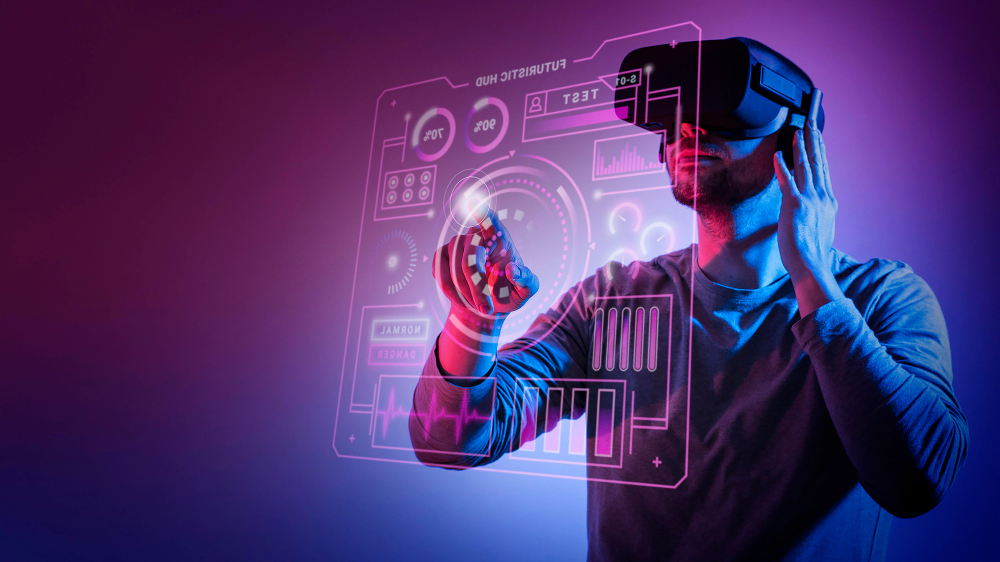Virtual Reality (VR) has emerged as a groundbreaking technology that is revolutionizing the way we experience entertainment and education. With its immersive and interactive nature, VR transports users to virtual worlds, offering a sense of presence and engagement like never before. In this article, we will dive into the realm of virtual reality, exploring its applications, impact, and the transformative potential it holds for both entertainment and education.
The Basics of Virtual Reality
Before delving into its applications, let’s understand the basics of virtual reality. VR is a computer-generated simulation that immerses users in a three-dimensional, interactive environment. Through the use of headsets, motion sensors, and haptic devices, users can explore and interact with virtual worlds, blurring the line between the real and the virtual.
Gaming and Entertainment
Virtual reality has brought a paradigm shift to the gaming and entertainment industry. With VR, gamers can step into the shoes of their favorite characters, experiencing games in a whole new way. From heart-pounding action sequences to immersive storytelling, VR gaming offers an unprecedented level of immersion, making players feel like they are truly part of the virtual world.
Virtual Travel and Exploration
VR has the power to transport us to places we’ve never been before. Through virtual travel experiences, users can explore distant destinations, historical landmarks, and even fictional worlds. VR allows individuals to experience the sights and sounds of different cultures and environments, opening up a whole new realm of exploration and discovery.
Enhancing Learning and Education
Virtual reality has tremendous potential to transform the field of education. By creating virtual learning environments, students can engage in immersive and interactive experiences that enhance their understanding and retention of complex concepts. From exploring ancient civilizations to conducting virtual science experiments, VR provides a hands-on and engaging educational tool that goes beyond traditional classroom settings.
Skill Development and Training
VR is increasingly being used for skill development and training across various industries. From medical simulations for surgical training to virtual flight simulations for pilots, VR offers a safe and cost-effective way to practice and refine skills in realistic scenarios. By providing a hands-on and immersive training environment, VR can accelerate learning and improve performance in a wide range of professions.
Empathy and Social Impact
One of the remarkable aspects of virtual reality is its ability to foster empathy and social impact. VR experiences can transport users to the perspective of others, providing immersive simulations that promote understanding and empathy. This technology has been utilized for raising awareness about social issues, such as refugee experiences, environmental conservation, and diversity and inclusion.
Overcoming Challenges and Expanding Accessibility
While virtual reality has made significant strides, there are still challenges to overcome. Issues such as motion sickness, high costs, and technical limitations need to be addressed for widespread adoption. However, advancements in VR technology, including wireless headsets, improved graphics, and more accessible pricing, are making VR increasingly accessible to a wider audience.
Ethical Considerations and Future Implications
As virtual reality continues to evolve, it is essential to consider the ethical implications it presents. Privacy concerns, ethical content creation, and the potential impact on social interactions are areas that require thoughtful consideration and regulation. It is crucial to strike a balance between innovation and responsible usage of VR technology to ensure its positive impact on society.
Unleashing the Power of Virtual Reality: Transforming Entertainment, Education, and Beyond
Virtual reality has transcended the realm of science fiction and become a powerful tool that is reshaping entertainment and education. From immersive gaming experiences to transformative educational applications, VR offers endless possibilities for enhancing engagement, learning, and empathy. As technology continues to advance, it is crucial to embrace virtual reality’s potential while being mindful of its ethical implications. With further innovation, VR will undoubtedly continue to captivate our imaginations and usher in a new era of immersive experiences. As virtual reality becomes more accessible and its capabilities expand, we can expect to see even more innovative applications across various industries. From healthcare and architecture to art and communication, the potential for VR knows no bounds.
